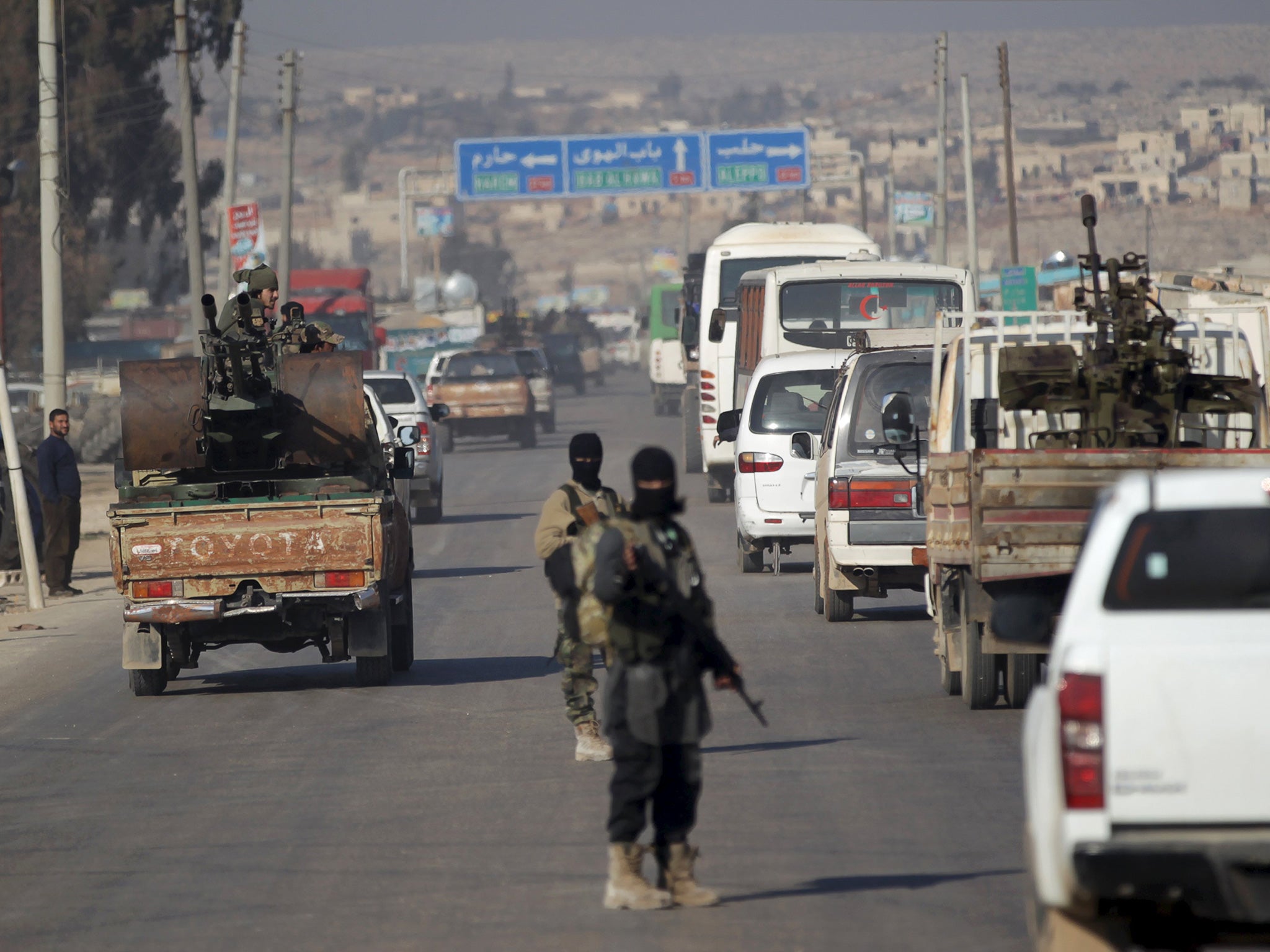Syria civil war: Pact aims to help those on both sides dying from hunger in besieged Madaya, Kefraya and Fua
Deal to provide food to besieged towns has assisted communities encircled by both rebels and regime troops, and aid will resume next week. Laura Pitel reports from Istanbul

Your support helps us to tell the story
From reproductive rights to climate change to Big Tech, The Independent is on the ground when the story is developing. Whether it's investigating the financials of Elon Musk's pro-Trump PAC or producing our latest documentary, 'The A Word', which shines a light on the American women fighting for reproductive rights, we know how important it is to parse out the facts from the messaging.
At such a critical moment in US history, we need reporters on the ground. Your donation allows us to keep sending journalists to speak to both sides of the story.
The Independent is trusted by Americans across the entire political spectrum. And unlike many other quality news outlets, we choose not to lock Americans out of our reporting and analysis with paywalls. We believe quality journalism should be available to everyone, paid for by those who can afford it.
Your support makes all the difference.They are two hundred miles apart and support different sides in Syria’s grinding civil war. But the fate of two pairs of besieged towns has been bound together, their inhabitants at the mercy of the forces that are fighting each other.
One is Madaya, a former holiday resort that has become a starvation camp after a six-month siege imposed by the Syrian army and its allies from the Lebanese militia Hezbollah. Amid a growing international outcry in response to images of emaciated corpses and starving babies, the Syrian government promised this week to allow the first shipment of aid since October. The Syrian Arab Red Crescent has said that it hopes to deliver food and medicine on Monday.
At the same time, it will take aid to Kefraya and Fua, two villages in Syria’s northern Idlib province. Since March, they have been surrounded by a rebel coalition dominated by groups linked to al-Qaeda who have threatened to massacre the mainly Shia Muslim villagers. Together with Zabadani, which lies next to Madaya, the towns are part of a four-way pact that has linked the plight of the civilians who live there.
About 400,000 people across Syria are being subjected to siege tactics, according to a recent UN report. Half of those trapped are in the government-controlled western part of the city of Deir el-Zour, which is surrounded by Isis jihadists. Thousands more are in the restive Eastern Ghouta region of Damascus.
The plight of Madaya, a mountain town between the capital and the Lebanese border, rose to the forefront this week after starving families warned that they were being forced to eat weeds, cats and dogs. Surrounded by land mines, the estimated 40,000 residents are unable to leave. The charity Médicines Sans Frontières said that 23 patients in the health centre it supports in the town have died of starvation since 1 December.
Though they have received less attention, those from the two pro-government villages in Idlib say that they too are suffering. Their enclave faces regularly shelling. Surrounded by Sunni rebel groups with a strongly sectarian ideology, its Shia inhabitants live in fear of being slaughtered.
Their future became tied up with that of Madaya and Zabadani in March last year when a rebel coalition dominated by the al-Qaeda affiliate Jabhat al-Nusra and the conservative Islamist group Ahrar al-Sham took control of Idlib city. They laid siege to Kefraya and Fua, home to an estimated 12,500 civilians, cutting off their only remaining supply line.
The Syrian army, then reeling from a series of defeats, launched a joint offensive with its ally Hezbollah against Zabadani and Madaya, two towns on the border with Lebanon containing fighters from groups including Jabhat al-Nusra and Ahrar al-Sham.
Rebels in Idlib retaliated before finally approaching the United Nations to ask for negotiations to bring the stand-off to an end. “Basically, it was just a coincidence that you had a dynamic of reciprocal sieges and offensives on those two villages and Ahrar al-Sham was involved in both,” said one diplomat.

In September, a deal known as “the four towns truce” was struck. A delivery of aid to all four areas went ahead in October. After Christmas an elaborate evacuation took about 450 injured and sick people out of the towns via Turkey and Lebanon, but no further aid has been allowed in.
Unlike opposition groups, the Syrian government can use helicopters to make aid drops into Kefraya and Fua. The towns do not appear to have suffered the same level of shortages as Madaya. Nonetheless, Abu Yusuf, a student from Kefraya, told The Independent that there were limited supplies of medicines and food.
“Helicopters dropped some provisions but in very small quantities and it wasn’t enough for the residents,” he said. “Some aid came from the Red Crescent but it was a very small quantity and it was intercepted by the [armed] groups which stole from it before it reached Kefraya.”
Despite their linked futures, it is hard to find much sympathy exchanged between the two opposing sides of the conflict. Some in Madaya have voiced solidarity with people in Kefraya and Fua. But on social media Syrians in rival camps trade claims about whose people are more hungry.
Hussein Assaf, a Syrian-American who has been campaigning for Madaya, said that it was important to condemn all sides. “We are against any type of blockade of any civilian community, whether they are Sunni, Christian, atheist,” he said. “We urge all parties besieging Fua and Kefraya to stop. Take your fights outside the town and leave the civilians out of it.”
Join our commenting forum
Join thought-provoking conversations, follow other Independent readers and see their replies
Comments